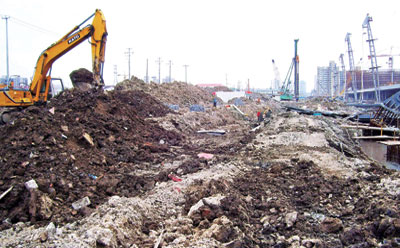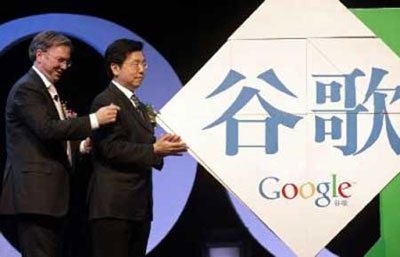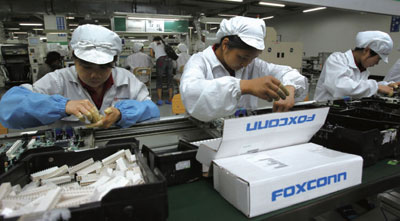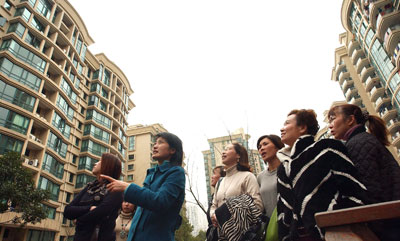Commentary from This Week's Paper

Why we are Sensitive about Eminent Domain
Comment, page 16
By Huang Xiaowei
~The Public is “allergic” to any mention of eminent domain, especially the version proposed in the “Sichuan Emergency Response Bill.”
~But as we know, government seizure of private property is not the equivalent of robbery. There are laws regulating compulsory acquisition of private property, and compensation for property.
~The new Sichuan law states that if owners of a commercial/residential property refuse to give up the property in an “emergency,” the government is entitled to seize it by force.
~Many are afraid that the law infringes on private property rights and will be abused by government officials. Of the 60,000 people who have already participated in an online poll on the topic, over 93% were against the Sichuan law.
~The reaction is not so much a public outcry against eminent domain but the laws that govern eminent domain. The bill is vague, especially since we do not know what constitutes an “emergency”. There is no legal channel of protest if the government abuses the law.
~By contrast, eminent domain laws in the US, England, and France, all have very clear definitions of what constitutes an “emergency”; namely, war, natural disasters, and threats to national security, or if acquisition is in the interest of the entire community.
~Private property is a sensitive issue and the government should be cautious in passing eminent domain laws. They have already hit a nerve.
Original article:[Chinese]
Right Of Way? What about Our Rights?
Economic Observer Online, October 19, 2010
By Yang Tao
~Beijing lawyer Zhou Ze wrote in his blog about how he had been beaten up and cuffed by plain clothes police last Saturday. The officials were visiting a school in Wenchuan County, and asked everyone in the vicinity to leave. Zhou refused, and after his friend took a picture of the government official, he was attacked by plain clothes policemen and by the bodyguards of the government officials.
~The local and provincial officials have since apologized.
~Yes, the attackers are at fault, but the main problem is the outrageous conduct of local and provincial government officials.
~Government officials travel around with an entourage and are always clearing traffic and telling everyone to make way.
~Making way for public projects is understandable, but officials expect the “rabble” to clear out everywhere they go.
~ They have the “right of way,” but what about our rights? It is one thing to yield to officials on the road, but it is another when we are barred from even being on the same road.
~Zhou Ze’s story is not about police brutality; it is about the indifference of government officials toward the rights of average people.
Original article:[Chinese]

It is Chinese People, Not Google, Being Tested
Economic Observer Online, October 20, 2010
By Sun Shujie
~The Google Company has been severely tested recently.
~Google began to be tested when it decided to terminate cooperation with seven reseller agencies in eastern China (hereon referred as “seven agencies”). Its test has become more severe as Chinese people accuse it of having a “low moral standard”.
~Things are little bit weird in China. Not long ago, Google was still highly praised for its comfortable working atmosphere, high-quality products and relatively fair search results. But now, everyone is criticizing it although no one is sure if what they have been told by those seven agencies are 100 percent true.
~We all know that corruption is not a rare thing in the IT sales sector. Though it is possible to see some Google employees as having low moral standards, it is unfair to say Google is morally unqualified because of them.
~What we Chinese people need is the ability as well as a will to think independently, nothing else.
Original article:[Chinese]

Are Companies Like Foxconn Worth Fighting For?
Economic Observer Online, October 21, 2010
By Sun Shu jie
~When Foxconn left Shenzhen due to its high number of suicides, other provinces fought to get Foxconn to set up a factory in their province. I understand the lure of what a factory can add to a province’s GDP, but what I do not understand is, if places can filter out investment that causes pollution, why can they not filter out investment that would hurt people’s well-being?
~Those seemingly High-tech industries are actually the lowest level with their sweatshop working conditions and their harsh corporate structure. Why are they still important?
~In the topics covered in the 5th plenary session of the 17th CPC Central Committee why was GDP growth put before human survival and professional dignity?
~ Now should be the time to talk about corporate responsibility. Companies cannot only chase economic growth; they need to assume the same responsibilities to societies as individuals do including environmental protection and a certain moral standards about behavior.
~Although companies like Foxconn contribute to local GDP, they also create societal problems; how much money will it cost to solve them?
Original article:[Chinese]

The Standing of the Property Sector Challenged
Economic Observer Online, October 19, 2010
By Yang Hongxu
~The Chinese government has planned to make industries concerning energy-saving and environmental protection, next generation information technology, biology and high-end equipment manufacturing, pivotal sectors of the Chinese economy in 2020. This move indicates that former pivotal industries, including the property sector, will be challenged.
~When the added value of an industry has reached five percent of GDP, it is considered a “pivotal industry”.
~Another signal that the property sector may be weakened is that the Chinese government has shifted its focus from promoting GDP to improving the quality and sustainability of its economic development.
Original article:[Chinese]
The views posted here belong to the commentor, and are not representative of the Economic Observer |
Related Stories
Popular

- BOOK REVIEW
- October Issue of EO's Book Review
- A Chinese translation of the Durants' The Story of Civilization, Mr Playboy and interview ...
Interactive
Multimedia

- EEO.COM.CN The Economic Observer Online
- Bldg 7A, Xinghua Dongli, Dongcheng District
- Beijing 100013
- Phone: +86 (10) 6420 9024
- Copyright The Economic Observer Online 2001-2011
















